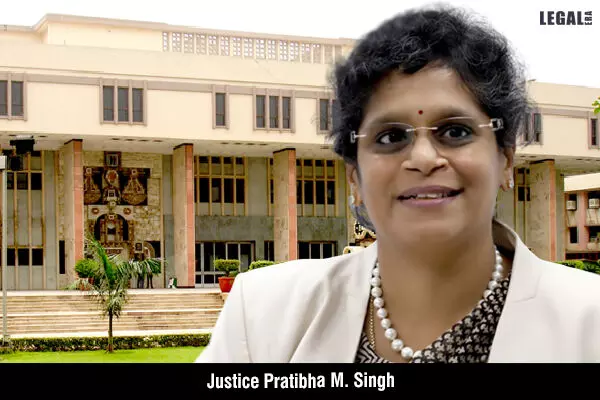- Home
- News
- Articles+
- Aerospace
- Artificial Intelligence
- Agriculture
- Alternate Dispute Resolution
- Arbitration & Mediation
- Banking and Finance
- Bankruptcy
- Book Review
- Bribery & Corruption
- Commercial Litigation
- Competition Law
- Conference Reports
- Consumer Products
- Contract
- Corporate Governance
- Corporate Law
- Covid-19
- Cryptocurrency
- Cybersecurity
- Data Protection
- Defence
- Digital Economy
- E-commerce
- Employment Law
- Energy and Natural Resources
- Entertainment and Sports Law
- Environmental Law
- Environmental, Social, and Governance
- Foreign Direct Investment
- Food and Beverage
- Gaming
- Health Care
- IBC Diaries
- In Focus
- Inclusion & Diversity
- Insurance Law
- Intellectual Property
- International Law
- IP & Tech Era
- Know the Law
- Labour Laws
- Law & Policy and Regulation
- Litigation
- Litigation Funding
- Manufacturing
- Mergers & Acquisitions
- NFTs
- Privacy
- Private Equity
- Project Finance
- Real Estate
- Risk and Compliance
- Student Corner
- Take On Board
- Tax
- Technology Media and Telecom
- Tributes
- Viewpoint
- Zoom In
- Law Firms
- In-House
- Rankings
- E-Magazine
- Legal Era TV
- Events
- Middle East
- Africa
- News
- Articles
- Aerospace
- Artificial Intelligence
- Agriculture
- Alternate Dispute Resolution
- Arbitration & Mediation
- Banking and Finance
- Bankruptcy
- Book Review
- Bribery & Corruption
- Commercial Litigation
- Competition Law
- Conference Reports
- Consumer Products
- Contract
- Corporate Governance
- Corporate Law
- Covid-19
- Cryptocurrency
- Cybersecurity
- Data Protection
- Defence
- Digital Economy
- E-commerce
- Employment Law
- Energy and Natural Resources
- Entertainment and Sports Law
- Environmental Law
- Environmental, Social, and Governance
- Foreign Direct Investment
- Food and Beverage
- Gaming
- Health Care
- IBC Diaries
- In Focus
- Inclusion & Diversity
- Insurance Law
- Intellectual Property
- International Law
- IP & Tech Era
- Know the Law
- Labour Laws
- Law & Policy and Regulation
- Litigation
- Litigation Funding
- Manufacturing
- Mergers & Acquisitions
- NFTs
- Privacy
- Private Equity
- Project Finance
- Real Estate
- Risk and Compliance
- Student Corner
- Take On Board
- Tax
- Technology Media and Telecom
- Tributes
- Viewpoint
- Zoom In
- Law Firms
- In-House
- Rankings
- E-Magazine
- Legal Era TV
- Events
- Middle East
- Africa
Delhi High Court: Word 'Seat' Not Mandatory In Arbitration Clause For Determination Of Jurisdiction

Delhi High Court: Word 'Seat' Not Mandatory In Arbitration Clause For Determination Of Jurisdiction
The Delhi High Court has ruled that the inclusion of the term seat in an arbitration clause is not mandatory for determining the jurisdiction of the court responsible for overseeing proceedings arising from the arbitration agreement.
Justice Pratibha M. Singh's bench determined that there would be no distinction between seat and venue when the jurisdiction granted to other courts is subjected to the arbitration agreement. It was determined that, in the absence of any conflicting indications, the designated place would serve as the seat of arbitration.
The parties executed a unit buyer agreement on October 17, 2013, through which the petitioner reserved a flat within the complex owned by the respondent. Clause 17 of the agreement stipulated arbitration as the method for resolving disputes.
Following a dispute between the parties, the petitioner initiated arbitration by sending a letter dated August 26, 2023. When the parties failed to mutually appoint an arbitrator, the petitioner submitted an application under Section 11 of the Arbitration and Conciliation Act, seeking the appointment of an arbitrator.
The respondent raised an objection regarding the maintainability of the petition, citing that the arbitration clause does not specify a seat of arbitration; instead, it designates New Delhi as the location for the arbitration proceedings. According to Clause 17.3 of the agreement, exclusive jurisdiction is conferred upon the courts in Noida. As a result, the respondent contends that the petition is not maintainable.
The court held that Clause 17.3 of the agreement, which confers exclusive jurisdiction on the courts in Noida, is subject to the arbitration clause (Clause 17.2) of the same agreement. It was observed that the arbitration clause clearly stipulates that the arbitration proceedings are to be held in Delhi. The court noted that the distinction between the seat and venue of arbitration, which was raised by the respondent, is not applicable in this case.
The court affirmed that the designation of a place of arbitration in an arbitration clause as the venue of the arbitration proceedings signifies that the venue is, in fact, the seat of the arbitral proceedings. Therefore, Delhi would be considered the seat of arbitration in this case, despite the agreement mentioning Noida as the exclusive jurisdiction for disputes not referred to arbitration.
In light of the above, the court rejected the objection raised by the respondent regarding territorial jurisdiction and appointed an arbitrator.



